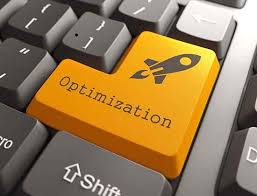Getting the most out of your guitar practice is essential for anyone striving to master the instrument. Yet, many guitar players and teachers focus solely on how much time you spend practicing. The common belief is, “The more hours you practice, the better your results.”
While there’s some truth to this, time is only one factor in your progress.

It’s far from the most important one. In fact, the quality of your practice matters far more than the quantity. Let’s explore how to optimize your practice routine for better results, no matter how much time you have.
Why Quality Beats Quantity
Imagine this:
- One hour of practice could involve sitting with your guitar in front of the TV, snacking, chatting with your partner about the mortgage, and occasionally strumming a few chords.
- Or, that same hour could be spent in a quiet room with all distractions turned off—no TV, phone, or tablet—fully focused on improving specific skills.
The difference in results between these two scenarios is enormous. Focused practice yields significantly better outcomes than distracted practice. That’s why you should optimize how you practice before worrying about how much time you spend practicing. In this article, you’ll discover helpful tips to make every minute of your practice count.
1.Create a Practice Routine
Many guitarists think they’re practicing when they’re actually just playing whatever they feel like at the moment. While this can be fun, it’s not the most effective way to improve. To maximize your results, you need a structured practice routine.
Plan Your Practice Time
If you have an hour to practice, know exactly what you’ll work on during every minute of that hour. A great way to approach this is to plan your practice routine one week at a time.
- Choose 4–6 different focus areas for the week, such as:
- Technique
- Aural skills
- Sight reading
- Improvisation
- Fretboard knowledge
- Learning songs
- Each focus area should align with your long-term goals.
Divide Your Time Wisely
Some skills benefit from longer practice sessions, while others are better practiced in short, focused bursts. For example:
- Musical skills (like learning songs or improvisation) may need longer, uninterrupted sessions.
- Technical skills (like scales, picking exercises, or finger independence) are best practiced in short, intense intervals.
2. Use a Timer
Concentration is one of the biggest challenges for most people. By improving your focus, you’ll get far more out of your practice routine.
Why Use a Timer?
Using a timer helps you stay on track and avoid drifting into aimless playing. A timer can also serve as a reminder to refocus.
For example, you can use a timer like the Gymboss, which can beep at regular intervals. Set it to beep every minute or two as a gentle reminder to stay focused on your task. This simple trick can dramatically increase the efficiency of your practice.
3. Change Things Up Regularly
Repeating the same routine for too long can lead to plateaus in both progress and motivation.
Understanding Plateaus
- In the beginning, when you start practicing something new, your skills improve quickly. However, over time, progress slows down, and you may feel stuck.
- Similarly, your motivation is highest when you’re learning something fresh and exciting. As the novelty wears off, so does your enthusiasm.
To avoid these plateaus:
- Pay attention to when your progress and motivation begin to decline.
- Adjust your routine or tweak your practice items at this point to keep things engaging and productive.
How to Optimize for Motivation and Progress
Think of two imaginary graphs:
- Skills vs. Time: At first, your skills improve rapidly, but the curve flattens as progress slows.
- Motivation vs. Time: Motivation starts high but decreases as the novelty of an exercise wears off.
The ideal time to change or tweak your routine is when these two graphs intersect—before progress slows too much and while motivation is still reasonably high.
This keeps your practice sessions engaging and ensures you’re always learning efficiently.
Conclusion: The Path to Effective Practice
Maximizing your guitar practice isn’t about spending endless hours with your instrument. It’s about focusing on:
- Quality: Eliminate distractions and give your full attention to what you’re practicing.
- Structure: Plan your practice sessions around your goals.
- Variety: Keep things fresh by changing your routine before hitting a plateau.
By applying these tips, you’ll get more out of every practice session and see faster, more rewarding progress on your guitar journey.
About the author:
Janus Buch is a professional guitar teacher teaching out of Copenhagen, Denmark, and running the Guitar Academy there. If you are local to the area and looking for Guitar Lessons Vejle, the Guitar Academy is definitely the best choice.

